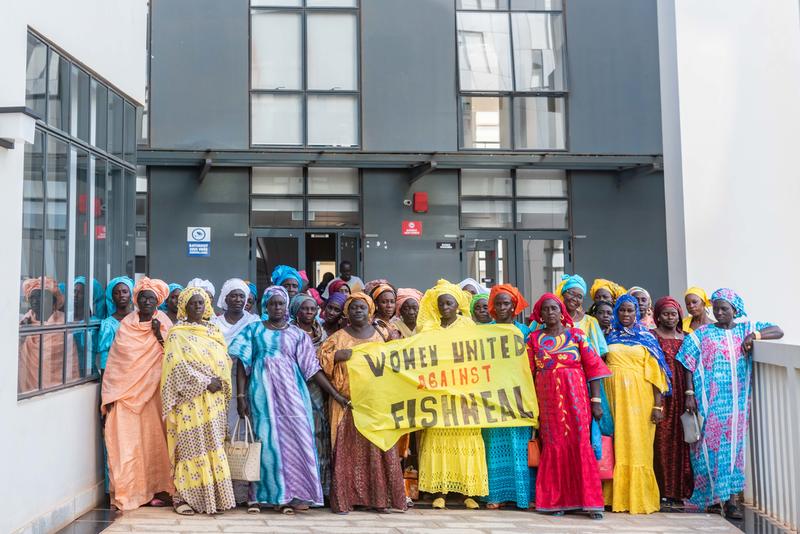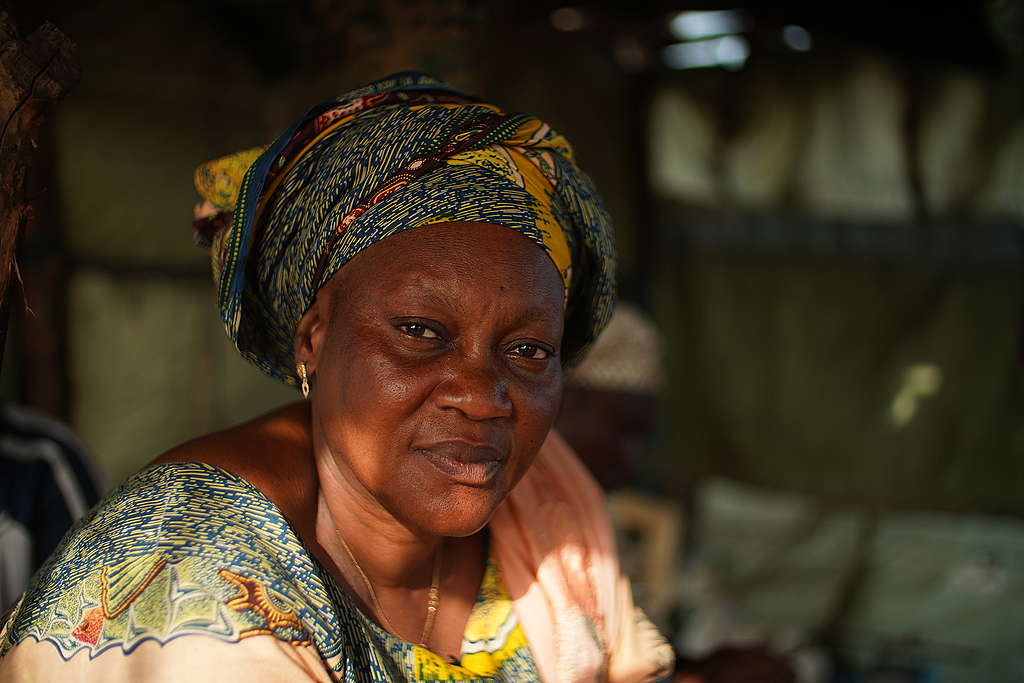
Dakar, Senegal, 15 October 2020 – The Ministry of Fisheries and Maritime Economy of Senegal issued apress release on 12 October 2020 and rejected the key findings in Greenpeace Africa’s report “Seasick: as COVID-19 locks down West Africa, its waters remain open to plunder“(1). According to the Ministry’s press release: “The totally unfounded allegations contained in the said report are shocking given that (…) the Ministry of Fisheries and Maritime Economy has always provided clarifications and denials, whenever necessary, to all national actors and international public opinion.”
In response to the Ministry’s press release accusations, Greenpeace Africa Oceans Senior Campaign Manager, Dr Ibrahima Cisse, says: “The Ministry of Fisheries didn’t provide any relevant information. Before releasing the report, Greenpeace Africa has already officially referred the matter on foreign vessels to the Ministry of Fisheries and Maritime Economics twice since the beginning of 2020. But the Ministry has not deemed it necessary to respond to our requests.
“Instead of throwing the blame at civil society, government authorities should choose transparency and share the list of vessels authorised to fish in the Senegalese Exclusive economic zone (EEZ), including the type and date of allocation of licences. Furthermore, the Ministry should enlighten public opinion about how these licences were granted by disclosing the process while specifying the meetings of the Consultative Commission for the Attribution of Industrial Fishing Licences (CCALP) who examined the vessels requests and the list of attendees.”
In 2012, Mr Macky Sall, a candidate in the presidential elections, supported Greenpeace Africa’s campaign against the foreign fishing boats exploiting Senegalese marine stocks. Once elected, he kept his promise to stop this sell-off, which earned him the “Excellence in National Stewardship of the Ocean” award at the sixth edition of the Peter Benchley Ocean Awards for his policy to protect Senegalese fisheries. Greenpeace Africa congratulated President Sall and urged him to maintain the freeze until scientific studies prove that fish stocks in Senegalese waters have recovered.
According to the Minister’s press release, Greenpeace is aligned with industrial and artisanal fishery organisations.
Dr Cisse responded: “Greenpeace has consistently denounced the capture of pelagic resources and tonnage fraud by industrial fishing(2). Authorities have not acted to this day. In 2017, an expedition organised by Greenpeace in collaboration with the member states of the Sub-Regional Fisheries Commission (SRFC) had identified many vessels practising illegal, unreported and unregulated (IUU) fishing in the region, and sanctions were taken against certain vessels.”
Contrary to the minister’s claims, fishmeal plants across the region use fresh fish that is deliberately left to rot because their capacity far exceeds the tonnages of waste produced.
Dr Cisse concluded: “Finding loopholes in the legal system to grant licences to vessels when stocks are overexploited and populations are undernourished is inherently unethical. Greenpeace remains on the side of truth and transparency – no matter who is on the other side.”
Greenpeace Africa reiterates its commitment to support female fish processors, artisanal fishermen, and affected communities and calls once more for:
· The publication of the list of Senegal’s industrial fishing vessels, as well as the type and date of licensing;
· The elimination in the practice of all fishmeal production using fresh fish, the reorientation of fishmeal and fish oil processing capacity towards products for direct human consumption;
· Professional recognition of women fish processors and support for them to enjoy their rights.
ENDS
Contacts:
Mikaila Issa – Greenpeace Africa Media and Communications for West Africa [email protected]
Notes:
- Greenpeace Africa report: Seasick: as COVID-19 locks down West Africa, its waters remain open to plunder
- Greenpeace Africa Report: Main basse sur la sardinelle
 Get Involved
Get Involved
